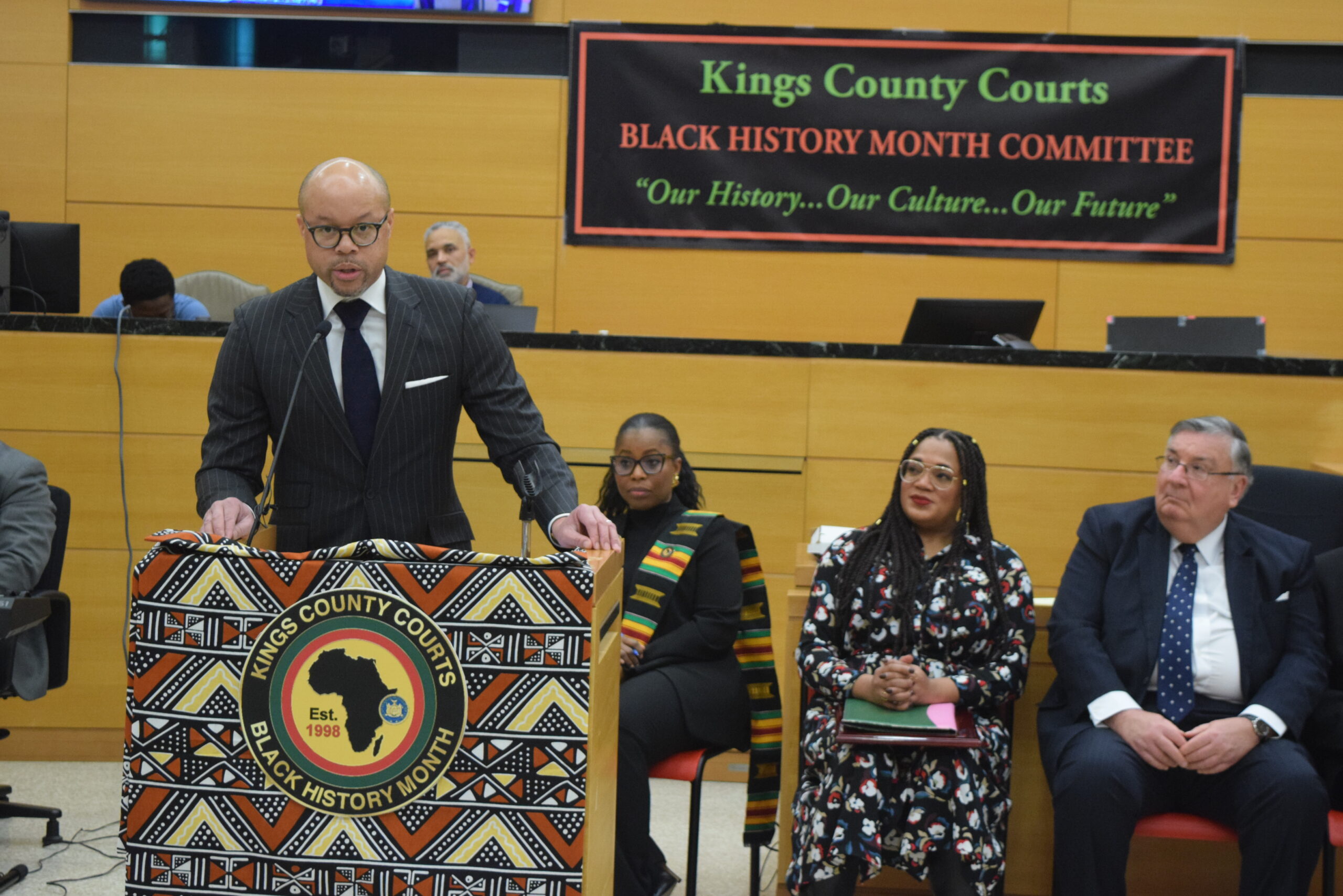Brooklyn Bar Association president-elect highlights voting rights issues at BHM event

Photo: Robert Abruzzese/Brooklyn Eagle
During a Black History Month event held at the Brooklyn courts, Anthony Vaughn Jr., the president-elect of the Brooklyn Bar Association, addressed voting rights, particularly as the issue affects students at Historically Black Colleges and Universities (HBCUs) in Georgia.
Vaughn, who will become the first Black man and third Black person to become president of the BBA when he takes over in June, spoke passionately about the importance of hosting regular Black History Month celebrations and raising issues facing the community.
“At a time when our elected leaders on the local and national level continue to refer to Black History Month with a certain amount of cynicism, it seems we’re almost always observing examples where Black history is either filtered, diluted, distorted, or simply ignored,” Vaughn said.
